Israeli Soldiers Abused Me Before. I’m Terrified That They’ll Do It Again.
Israel is invading Gaza City again. The trauma of what they did to me and my family during their last invasion haunts me every single day.
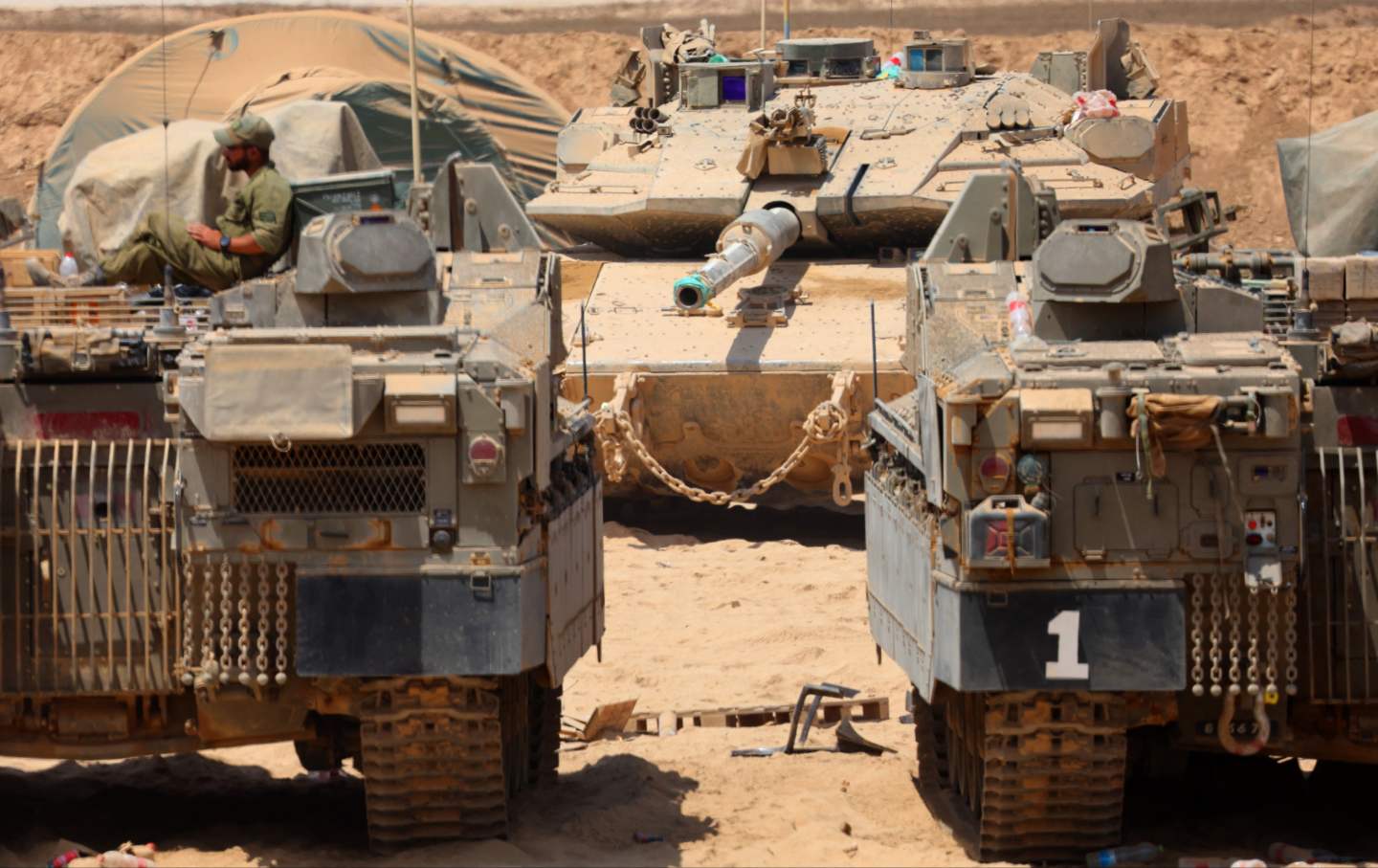
Gaza City—As the Israeli military begins its latest invasion of this city, an unshakable fear settles over me. As I live in the heart of northern Gaza, I carry not just worry for what may come, but the weight of what I’ve already seen. The memories of soldiers in our streets, the sound of tanks, the fear in my family’s eyes—none of it has left me.
Nor has what the soldiers did to us the last time we encountered them.
On January 28, 2024, at 11 pm, occupation vehicles and tanks rolled into the west of Gaza City in the Al-Jawazat area, where I live. I vividly heard the sounds of the roaring engines and the cries and wails of those displaced in the school beside our home. My family and I maintained absolute silence, listening to the sounds in the streets.
It turned out to be the beginning of a nine-day siege.
With every rumble of the vehicles outside, we were convinced death could claim us at any moment: whether by a bulldozer crushing the walls above us, a tank shell reducing us to dust amid the debris, or a warplane striking our home and leaving us among the disappeared. None of us had ever experienced anything like this before.
Through the nine days of siege, the air strikes and explosions never ceased, whether on nearby or distant targets. We could hear the soldiers murmuring and laughing at night. We were eating only a bowl of soup or a small piece of cheese for meals. There wasn’t enough water. We went to sleep early, and made sure to turn off every single light—including the lights from our phones. We knew that any light, no matter how dim, could draw attention to us and threaten all of our lives.
On the ninth day of the siege, on February 6, at 4 pm, we heard a troop carrier in front of our building. Israeli soldiers unleashed their weapons, and their bullets shattered glass in every part of the building. The Israeli soldiers approached our neighbor’s building, launched a grenade at their entrance, and proceeded to storm it.
After some minutes, they stormed our house. They were about to throw a bomb to open our door, but one of the men with us stepped out and shouted to them, “Shalom, shalom, we are only civilians.” The soldiers aimed their weapons and rifle muzzles at him and ordered him and all the males over 15 years old to take off their clothes. Then he asked about our total number. He told him that there were 29 people in the house. The soldiers were stunned. Then they ordered us to come out of the building in our underwear, with our hands raised.
They ordered us to sit on the ground, face the wall, and put our hands behind our backs. Then, a soldier asked for our IDs. I showed my ID to the soldier, and he took it without looking at it, just throwing it on the ground and stepping on it. Then, he tied my hands behind my back.
Ten minutes later, we were eventually taken outside our building, with our hands bound. We were forced to march barefoot through the mud without wearing any shoes. The soldiers showed no empathy; their only concern was to move us to an unknown location where their tanks were stationed.
It was the first time I encountered Israeli soldiers face-to-face, and I was stunned by the scene. There were hundreds of soldiers and more than 20 tanks in our area, and devastation was overwhelming. I saw Israeli flags raised on their tanks. There were dozens of soldiers and recruits who mocked us and laughed after seeing us stripped of our clothes.
After that, an Israeli soldier ordered us to stand in two lines, one for the men and one for the women and children. One of the Israeli soldiers came from behind me, untied my hands, and told me to move the wheelchair of a disabled young man who was with us. He spoke to me in Arabic, saying, “Look down and don’t look at me, just keep moving.”
I struggled to move the wheelchair through the deep mud, and the wheels wouldn’t turn. There was glass in my feet, but I couldn’t do anything except keep walking. We were eventually herded into a large hole in the ground that the Israeli tanks had excavated and where they were stationed. This hole was surrounded by Israeli tanks and armed soldiers.
I couldn’t understand what was happening at that moment. The soldier tied my hands with a strap, put a cloth over my eyes, and ordered us to sit, facing away from the center of the hole. Then, an Israeli officer came and spoke in Arabic, asking each person for their ID number.
We sat in the hole, shivering from the cold, without clothes, unable to see anything, not knowing what was happening around us.
I began to feel weak, so I asked to change my sitting position because I couldn’t feel my feet. No one responded, so I kept calling until an officer came and asked, “Do you speak English?” I said, “Yes.” He asked, “What do you want?” I replied, “I just want to change my sitting position.” He didn’t respond, so I shifted slightly, and the soldier came and hit me with his weapon, telling me not to move.
Hours passed, and I felt as though my mind and body were shutting down. A soldier would occasionally shine a red laser on the cloth covering my eyes and point his gun at my ear, further exacerbating the sense of dread. I kept wondering, “Will I make it out of here? Will my family be safe?”
After a while, a soldier came and asked me my age, what I did, what I studied, and where I studied, then left me. I told him, “I’m a first-year student and I’m only 18 years old.” While I was sitting, I felt fear and extreme cold. There was a tank circling the hole, throwing sand on us to warm us up.
Popular
“swipe left below to view more authors”Swipe →I was so exhausted that I couldn’t feel my body or mind. I dozed off briefly, but it was a painful nap. The soldier continued to shine the laser on my eyes to prevent me from sleeping.
Suddenly, at 11 pm, an Israeli soldier came from behind, untied my hands, and removed the cloth from my eyes. He ordered me to stand, but I didn’t understand what was happening. I couldn’t even stand up. We had been sitting for eight hours, with no movement.
At this moment, an Israeli senior officer came and told us, “You are civilians. You have to go to the safe zone in the south.” We tried to convince him to let us stay in Gaza City, but he said that there was no point—they were just going to invade every part of the city anyway.
We left the north and went to the south forcibly in the night on foot, carrying the burden of displacement and longing for home. We stayed in the south in tents for 11 months until the ceasefire deal occurred in January and many displaced people returned to the north of the Gaza Strip.
This horrible experience always haunts me. I can’t believe I’m still alive.
The sound of their mocking laughter and the sight of their tanks and weapons are forever seared into my mind. The trauma of that siege and the constant dread of another ground invasion trails me like a shadow. I cannot stop thinking about the possibility of living through that nightmare once more and whether I would even manage to survive it again.
Take a stand against Trump and support The Nation!
In this moment of crisis, we need a unified, progressive opposition to Donald Trump.
We’re starting to see one take shape in the streets and at ballot boxes across the country: from New York City mayoral candidate Zohran Mamdani’s campaign focused on affordability, to communities protecting their neighbors from ICE, to the senators opposing arms shipments to Israel.
The Democratic Party has an urgent choice to make: Will it embrace a politics that is principled and popular, or will it continue to insist on losing elections with the out-of-touch elites and consultants that got us here?
At The Nation, we know which side we’re on. Every day, we make the case for a more democratic and equal world by championing progressive leaders, lifting up movements fighting for justice, and exposing the oligarchs and corporations profiting at the expense of us all. Our independent journalism informs and empowers progressives across the country and helps bring this politics to new readers ready to join the fight.
We need your help to continue this work. Will you donate to support The Nation’s independent journalism? Every contribution goes to our award-winning reporting, analysis, and commentary.
Thank you for helping us take on Trump and build the just society we know is possible.
Sincerely,
Bhaskar Sunkara
President, The Nation
More from The Nation
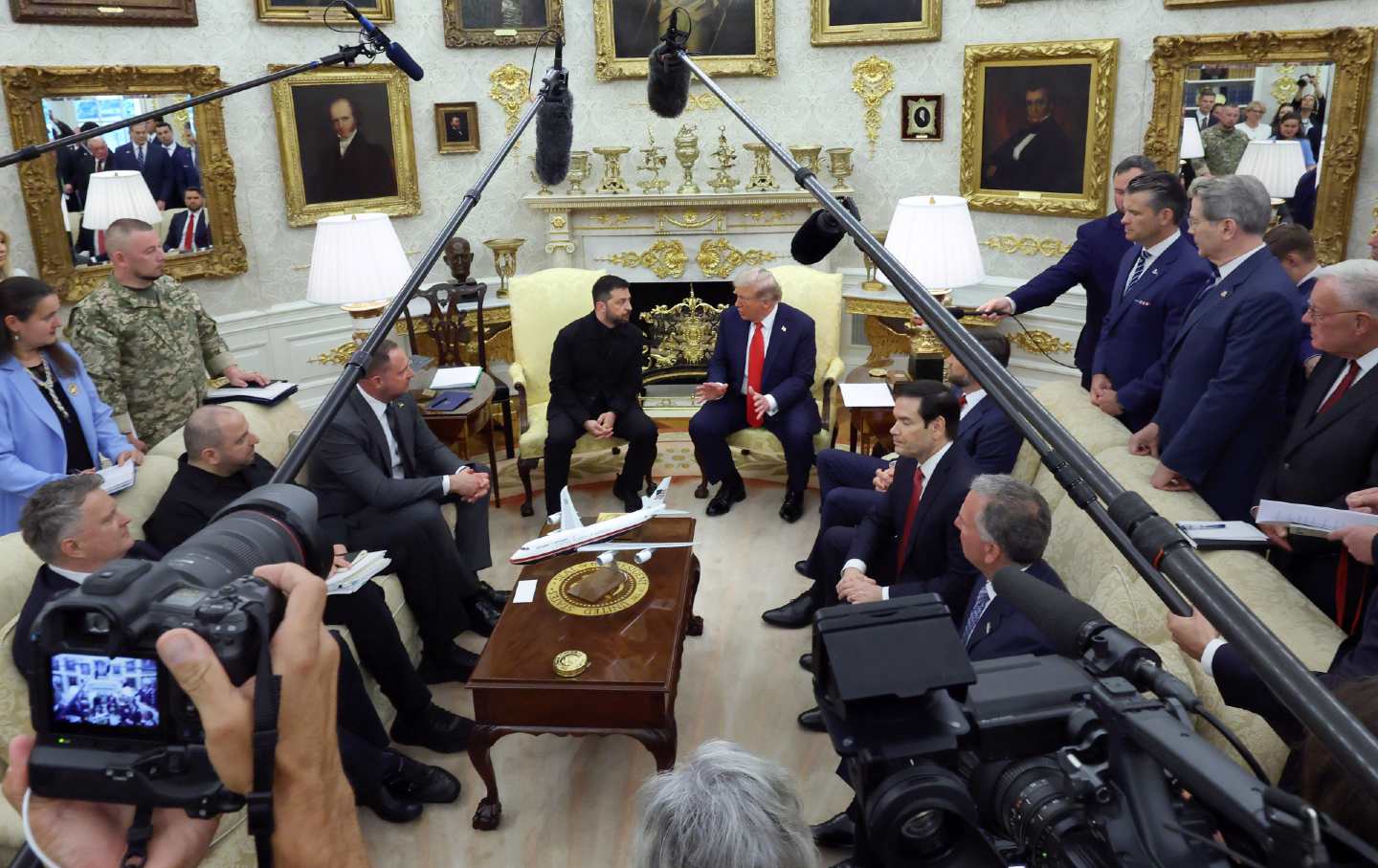
The Ukraine Peace Process Is Moving Quite Fast The Ukraine Peace Process Is Moving Quite Fast
Here are the openings—and obstacles.

Dismantling USAID Wasn’t Just Cruel—It Was Stupid Dismantling USAID Wasn’t Just Cruel—It Was Stupid
In an interconnected world, those who are alone, to use a favorite word of the president’s, are losers.
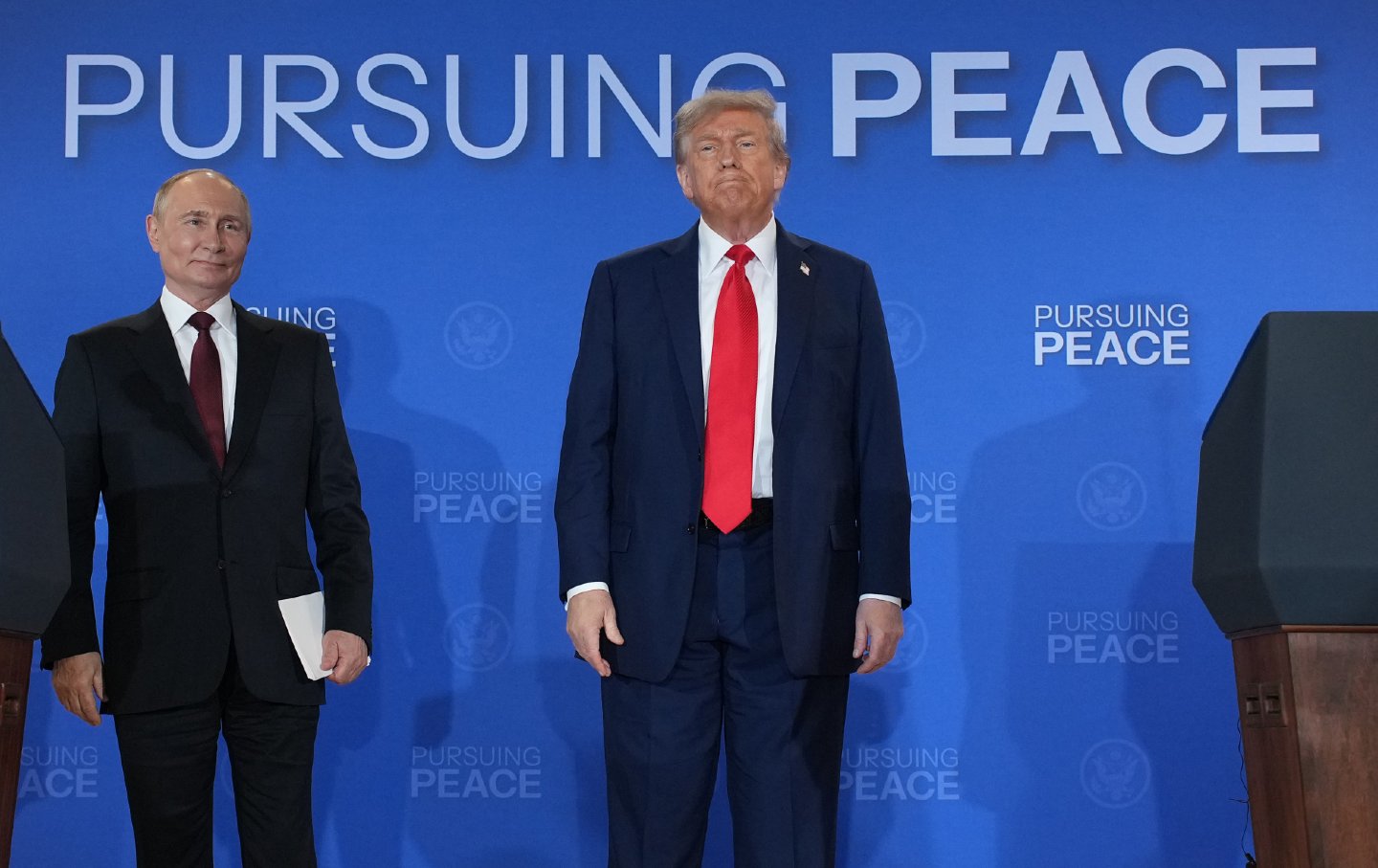
Trump Won’t Deliver Peace to Ukraine—or Anywhere Else Trump Won’t Deliver Peace to Ukraine—or Anywhere Else
No one can trust the United States when a fickle man-child controls its foreign policy.

Presidents Trump and Putin Must Seize the Moment in Alaska Presidents Trump and Putin Must Seize the Moment in Alaska
The war in Ukraine is a regional security and humanitarian tragedy, but regarding nuclear weapons, Washington and Moscow stand to benefit from working together.
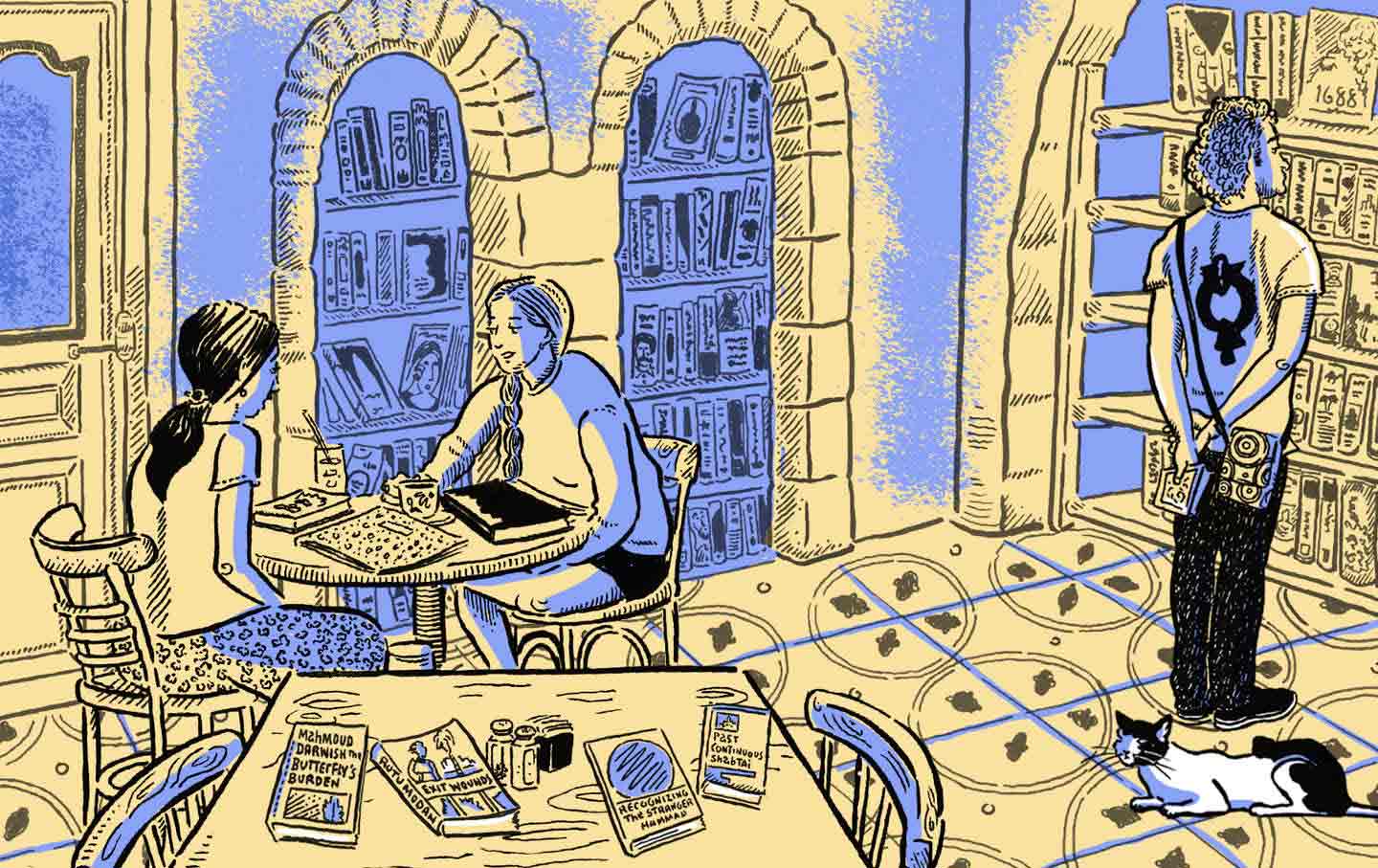
The Bookstores Bridging Divides in Israel The Bookstores Bridging Divides in Israel
People of goodwill on either side of the horror find unity in the search for a good read.
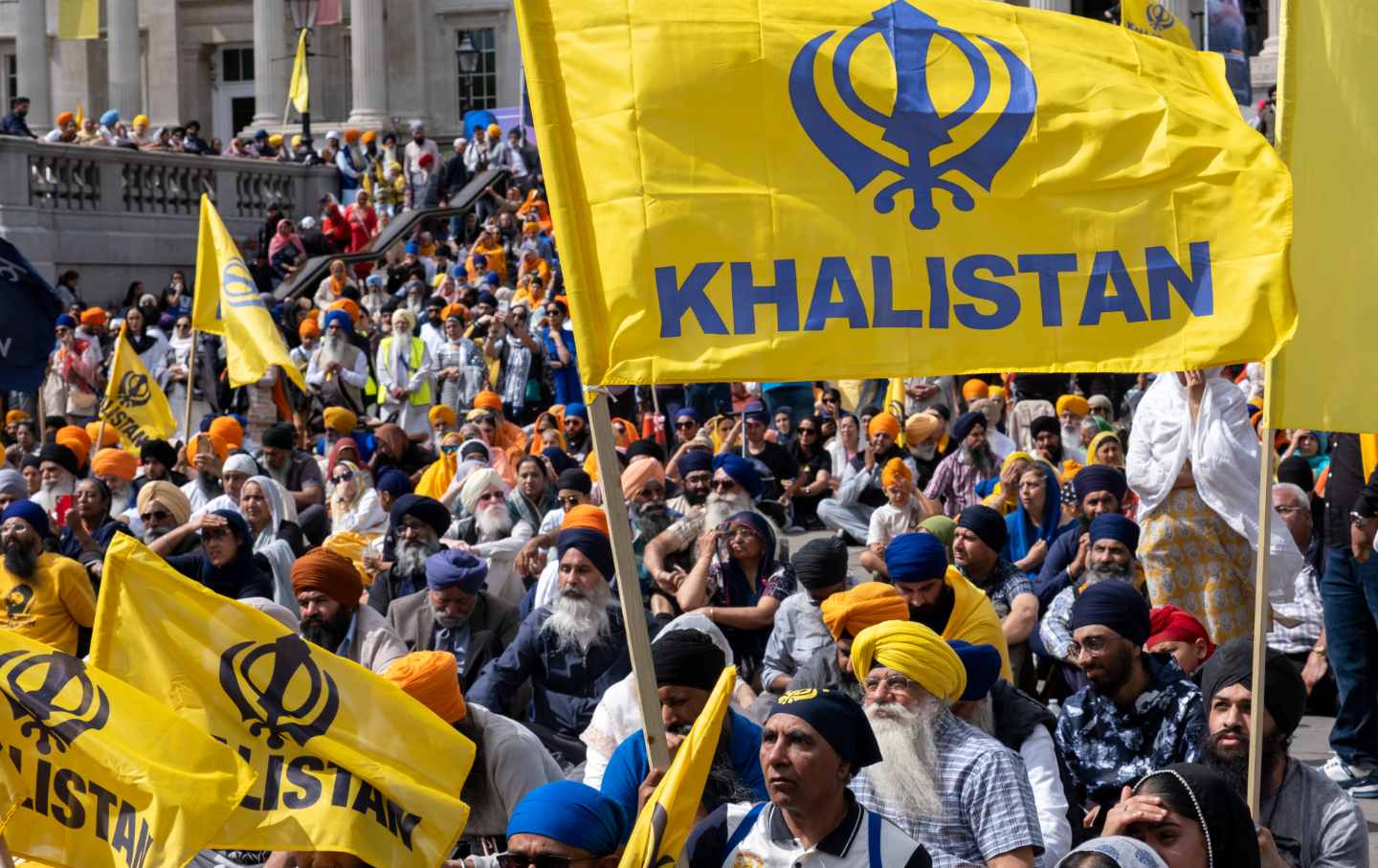
“It’s Homeland or Death”: The Separatist Movement Roiling the Indian World “It’s Homeland or Death”: The Separatist Movement Roiling the Indian World
Indian Sikhs across the globe want to form an independent breakaway state called Khalistan. The Indian government wants to crush them by any means necessary.


